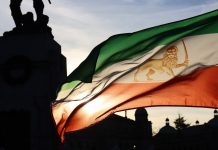The state institutions, the Romanian Orthodox Church and Romanian society are called to contribute to the objective knowledge of the historical truth of the Roma people’s slavery and to contribute to the support of this minority, the Romanian Patriarchate has stated.
This declaration follows the attempt of a public representative of Roma ethnicity in Romania to sue the Romanian Orthodox Church for the years of Roma slavery consumed in the time before the emergence of the modern Romanian State and the legal entity of the BOR.
„If we ignore the complexity of reality and history, reducing everything to a few simplifying ideas, if we defy reality by trying to judge and resolve the past with a tool totally inadequate to it, that of sensitivities, current civic rights, the advancement of knowledge and the logic of the present, as if this instrument were also applicable to things outside the social experience in which it appeared, then we are certainly faced with an endless series of dilemmas going down the millenary lines of history. How will we be able to correct, for example, so many cruelties and glaring injustices committed in antiquity, in the Middle Ages, in the Renaissance, in the bloody time of the French Revolution, in the Nazi Holocaust and the sinister communist Gulag, or in any historical era whose reverberations, however sublimated, still distressingly reach us? How can we rewrite history in such a way that it transforms itself into a serene continuous present, utopically built on the radical erasure of the uneven cultural, social and moral relief of the past?” says a press release sent to Agerpres from the Press Office of the Romanian Patriarchate.
According to the source, „the world, until relatively recently in the modern era, was organized strictly on hierarchical principles that structured society pyramidally, made up of various categories of people included in the socio-political system of the time”.
The Patriarchate considers this is the context in which Roma slavery should be understood.
„It is of intellectual and moral honesty to say publicly and resoundingly that not all Roma were slaves, that not all the slaves in the Romanian countries were Roma and that there were also many Romanian, peasant or Turkish slaves in the same epoch and in the same geographical space. Slavery was part of the social life of the medieval Romanian Principalities to the same extent that it was an institution of neighbouring societies: the Byzantine Empire, Serbia, Bulgaria, the Ottoman Empire, the Hapsburg Empire, the Tsarist Russia, but also at a larger level: Latin America, the United States of America, France, Great Britain, countries in which the abolitionist movement (of abolishing slavery) developed, but which in their turn have succeeded in eradicating slavery only approximately in the same period as in the Romanian Principalities or even after the Romanian Principalities”, the Patriarchate said.
„The main characteristic of the institution of slavery in the Romanian Principalities refers to the lack of legal personality of the individual in this social category. However, in all the period of slavery in the Romanian Principalities, the nomadic Roma were free to wander the country and to practice their customs. Instead, Roma who had a fixed job, i.e. a steadfast activity, were obliged to stay in the same locality. Although the Roma ethnicity had the highest number of slaves, in the epoch there were slaves from other ethnicities and even Romanian slaves. The sale or redemption of the slaves or the physical punishments applied to the Roma slaves constituted the legal norm of the time, because the Romanian slaves bore the same punishments as the Roma, without any discrimination in this regard”, the Patriarchate stated.
According to the statement, the social enslavement of Roma was a complex process that, in addition to granting individual freedom, also included stopping nomadism, involving Roma in agriculture and integrating them into rural and urban communities.
According to the Romanian Patriarchate, a large majority of the inhabitants of today’s Romania who could request compensation from the identifiable descendants of the voivodes and boyars for the serfdom practiced in the former Romanian Principalities or even from the Romanian state itself that exists latently in the often cruel and unjust reality of the various historical epochs in the Carpathian-Danubian-Pontic space.
According to the Patriarchate, „in the post-modern and ideological key to repairing some injustices consumed on the scale of human society, it may seem unfair to select only a certain category of facts, such as the ‘slavery of the Roma’, and to apply this key of judgment to only one institution, the Romanian Orthodox Church”.
„In reality, it carries out numerous social projects through which it comes to the aid of Roma who have a precarious financial situation. Through the programmes carried out, medical assistance, psychological counseling, material help to prevent school abandonment and improvement of daily living are provided. The Church supports the Roma communities by printing the books of worship in the Romani language.
At the same time, the release emphasizes that the BOR contributes to the efforts to integrate and help the Roma through a series of programs. Over 30% of the social assistants of the Archdiocese of Bucharest are Roma, emphasizes the Patriarchate.
romanian-jobseeker-points-out-name-discrimination-in-uk

















